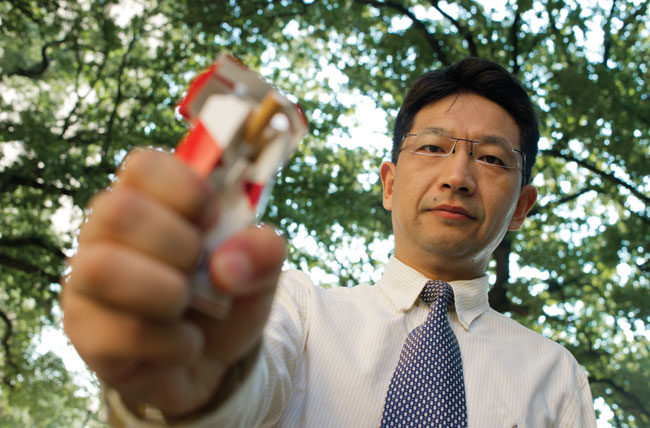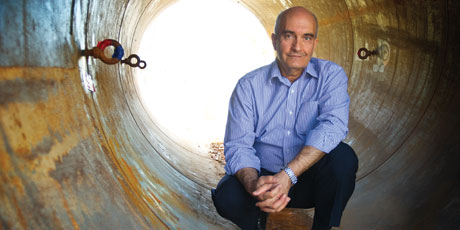Role Model
Stopping Teen Smoking
Study shows that parents have a greater impact on their grade-school-age children’s attitudes toward tobacco than peers or advertisers

Zhiyong Yang's study challenges our ideas
about parental influence on smoking.
Keeping your kids away from tobacco or alcohol may not be as hard as you think. According to
marketing researcher Zhiyong Yang, the best weapon is a healthy dose of positive
parental reinforcement.
Each day about
3,900 people under the age of 18 begin smoking in the United States, according
to the U.S. Centers for Disease Control. An estimated 1,000 of them will become
daily cigarette smokers, with about 30 percent continuing to use tobacco to the
extent that they eventually die early from a smoking-related disease.
Dr. Yang, an
associate professor of marketing, recently published a study in the Journal
of Business Research showing that early, substantive dialogue between
parents and their grade-school-age children about the ills of tobacco and
alcohol use can be more powerful in shaping teen behavior than advertising, marketing,
or peer pressure.
“First, our
conclusion is that parenting styles can be changed, and that’s good news for
the parents and the teens,” explains Yang, who joined UT Arlington in 2007 and
specializes in “consumer misbehavior,” a branch of marketing that attempts to
change undesirable or risky behavior.
“Second," he
continues, "our study shows that parental influence is not only profound
in its magnitude, but also persistent and long-lasting over the course of a
child’s entire life. Effective parenting plays the critical role as a
transition belt to pass normative values of society from one generation to
another.”
This does not
include parenting strategies that employ negative reinforcement, such as
belittling a teenager, threats, physical discipline, or using negative consequences
if the teenager’s behavior does not meet parental expectations.
“In fact, our
research shows that those negative strategies, like withholding affection, can
actually drive a teen toward smoking,” Yang explains.
The research also
indicates that parents could have a positive impact on discouraging their child
from using tobacco by sharing their own experiences.
“There’s something
to be said for telling a teen about how you suffered when you smoked or engaged
in a bad behavior during your youth,” Yang says.
His findings are
counter to common perceptions that parents have little influence on children’s
behavior after they enter adolescence. Conventional wisdom suggests that peer
pressure and targeted marketing and advertising are of paramount influence on
teen decisions to use tobacco and alcohol or engage in other risky behaviors.
“What our research determined is that parental
influence is a far greater factor than those,” Yang says. “After all, parenting
starts from birth. What could have a greater impact than that?”

















